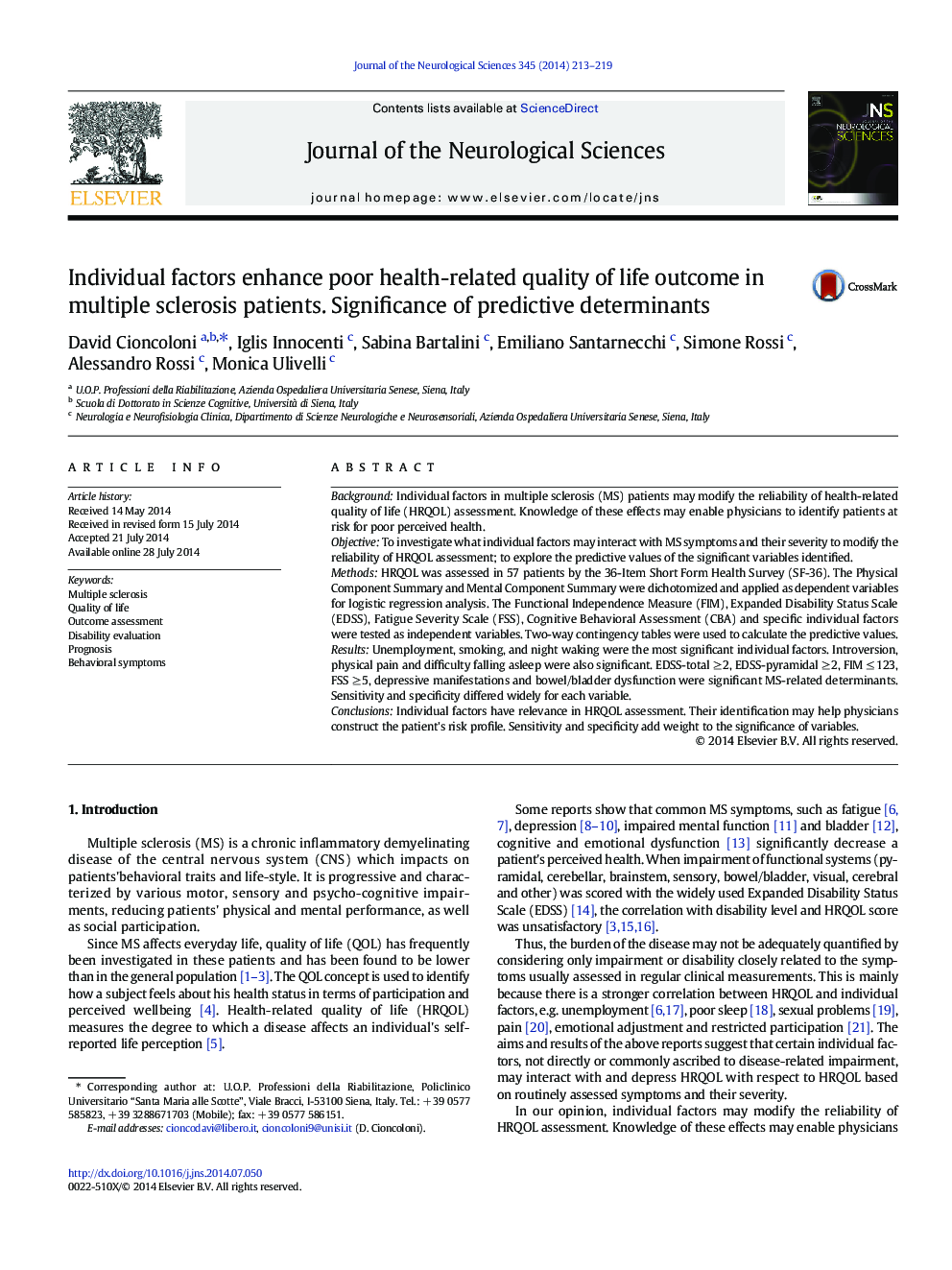| کد مقاله | کد نشریه | سال انتشار | مقاله انگلیسی | نسخه تمام متن |
|---|---|---|---|---|
| 1913373 | 1535117 | 2014 | 7 صفحه PDF | دانلود رایگان |
• Poor HRQOL is not closely related to the common MS symptoms.
• Individual factors modify the reliability of HRQOL assessment.
• Unemployment, smoking, and night waking are the most implicated individual factors.
• Sensitivity and specificity add weight to the significance of variables.
BackgroundIndividual factors in multiple sclerosis (MS) patients may modify the reliability of health-related quality of life (HRQOL) assessment. Knowledge of these effects may enable physicians to identify patients at risk for poor perceived health.ObjectiveTo investigate what individual factors may interact with MS symptoms and their severity to modify the reliability of HRQOL assessment; to explore the predictive values of the significant variables identified.MethodsHRQOL was assessed in 57 patients by the 36-Item Short Form Health Survey (SF-36). The Physical Component Summary and Mental Component Summary were dichotomized and applied as dependent variables for logistic regression analysis. The Functional Independence Measure (FIM), Expanded Disability Status Scale (EDSS), Fatigue Severity Scale (FSS), Cognitive Behavioral Assessment (CBA) and specific individual factors were tested as independent variables. Two-way contingency tables were used to calculate the predictive values.ResultsUnemployment, smoking, and night waking were the most significant individual factors. Introversion, physical pain and difficulty falling asleep were also significant. EDSS-total ≥ 2, EDSS-pyramidal ≥ 2, FIM ≤ 123, FSS ≥ 5, depressive manifestations and bowel/bladder dysfunction were significant MS-related determinants. Sensitivity and specificity differed widely for each variable.ConclusionsIndividual factors have relevance in HRQOL assessment. Their identification may help physicians construct the patient's risk profile. Sensitivity and specificity add weight to the significance of variables.
Journal: Journal of the Neurological Sciences - Volume 345, Issues 1–2, 15 October 2014, Pages 213–219
